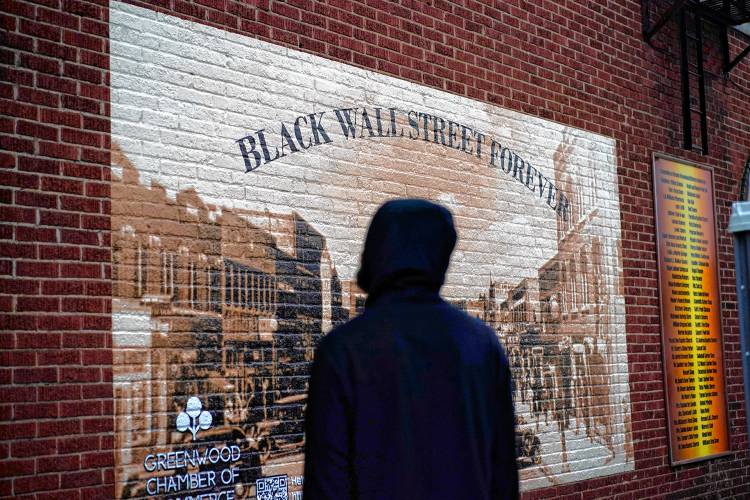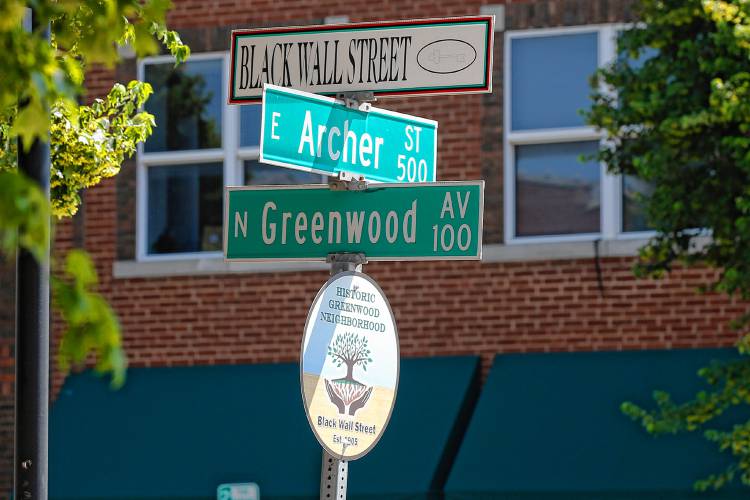Opinion: June: The persistence of summer and shadows
| Published: 06-08-2024 6:00 AM |
Robert Azzi is a photographer and writer who lives in Exeter. His columns are archived at robertazzitheother.substack.com
I love June. Not only is it the birth month of loved ones but a time filled with seemingly inexhaustible hours of light; children explore imaginary fields of dreams, our world turns green, bees buzz, gardens thrive, and I welcome colors and tastes unleashed for our palates and pleasures.
Yet shadows persist.
“I continue to believe that we’re not free in this country,” Bryan Stevenson said in a New Yorker profile in 2016. “There are spaces that are occupied by the legacy of that [racial] history that weigh on us. We talk a lot about freedom. We talk a lot about equality. We talk a lot about justice. But we’re not free. There are shadows that follow us.”
Moments, memories, flashes of light, shadows.
For me June is a pivot point; daylight hours become longer, then shorter, all within a moment yet a month where, despite the gifts, shadows persist.
It is at our peril we ignore the lessons within them, memories they reclaim.
This month America will celebrate Juneteenth, a now annual commemoration of Emancipation, of the end of slavery in America after the Civil War that, until 2021, had been celebrated primarily by African Americans since the late 1800s.
Article continues after...
Yesterday's Most Read Articles
 New Hampshire providers brace for Medicaid changes that reach beyond healthcare
New Hampshire providers brace for Medicaid changes that reach beyond healthcare
 New England College expands $10,000-per-year offer to Concord, Bishop Brady graduates
New England College expands $10,000-per-year offer to Concord, Bishop Brady graduates
 Concord school leaders weigh the future of middle school project without state building aid
Concord school leaders weigh the future of middle school project without state building aid
 Truck collision on South Main Street in Concord diverts traffic
Truck collision on South Main Street in Concord diverts traffic
 Warner shot down a housing developer’s bid. New statewide zoning mandates could clear a path for proposals like it.
Warner shot down a housing developer’s bid. New statewide zoning mandates could clear a path for proposals like it.
Now all Americans get to celebrate — as long as we don’t forget what it took to get us here.
I will celebrate too, on the 19th, the birthday of a loved one whom I’ve known longer than almost anyone other than my family, a loved one who gave me much of what sustains me today.
It’s barely a century since that time in 1921 when, on May 31 and June 1, the city of Tulsa, Oklahoma, conspired with white mobs to inflict a pogrom upon the Black residents of its Greenwood neighborhood. Attacked from both on the ground and air, more than 35 blocks of Greenwood, (known as America’s ‘Black Wall Street’) were burned to the ground… 300 killed, over 800 admitted to white hospitals (Black hospitals were torched), 10,000 homeless, more than 6,000 Black people arrested and detained.
It’s not yet a decade since I learned, on Friday, June 3, 2016, that Muhammad Ali, born Cassius Clay to descendants of slaves in Louisville, Ky., was dead at age 74. I remember being moved to tears as I remembered, years earlier watching him, body racked by Parkinson’s disease, struggle to light the Olympic torch in Atlanta.
He got it done.
I was moved because Ali had risen above the darkness and lived in the light.
My brother was dead.
I remember, too, that it was on another day in June, the 4th, in 1967 when Ali met in Cleveland, Ohio with several notable Black athletes like Bill Russell, Jim Brown, and Kareem Abdul-Jabbar, and with Attorney Carl Stokes (who later became Cleveland’s mayor), who had gathered to publicly support Ali’s refusal of the draft because he claimed conscientious objector status.
“My conscience won’t let me go shoot my brother, or some darker people, or some poor, hungry people in the mud for big powerful America. Shoot them for what? They never called me n*****. They never lynched me. They didn’t put no dogs on me. They didn’t rob me of my nationality, rape and kill my mother and father … Just take me to jail.”
Muhammad Ali was Muslim, radical and Black. Every chance he got, he addressed Black empowerment, racism, white power, privilege, anti-war politics — all through his understanding of the beauty of Islam. His love for humanity was defined by confronting the oppression of the colonized, the colonized who were mostly nonwhite people.
He believed that “service to others is the rent you pay for your room here on earth.”
That’s the beauty of the Muhammad Ali I love.
A beauty possible only through the promise of Emancipation.
Since 1619, in this nation built from sea to shining sea on stolen land, genocide of indigenous peoples, broken treaties and enslaved labor much of what America has accomplished, our sovereign blessings, have come too often at someone else’s expense.
Come too often by ignoring the promise of Juneteenth.
Blinded by our reluctance to acknowledge sin, ignorant of geography and history, we’re still unable to recognize the intersectionality of violence that connects the pogroms, lynchings, church burnings to the marginalization and disenfranchisement long endured by minority communities and communities of color in America.
As long as that history casts its shadow upon one it casts its shadow upon all.
A history where Breonna Taylor, Eric Garner, Trayvon Martin, Sandra Bland, Philando Castile, Freddie Gray, Tamir Rice, Alton Sterling, Ahmaud Arbery and so many others lie amidst the shadows, never able to fully bask in the light of Emancipation.
Those are the shadows amidst which we live.
This June let us remember that as the summer blaze of energy illumes our lives it is perhaps offering us a path toward redemption and healing, a path too often ignored, a path toward freedom for all.
A path toward freedom for all.









 Opinion: What Coolidge’s century-old decision can teach us today
Opinion: What Coolidge’s century-old decision can teach us today Opinion: The art of diplomacy
Opinion: The art of diplomacy Opinion: After Roe: Three years of resistance, care and community
Opinion: After Roe: Three years of resistance, care and community Opinion: Iran and Gaza: A U.S. foreign policy of barbarism
Opinion: Iran and Gaza: A U.S. foreign policy of barbarism
